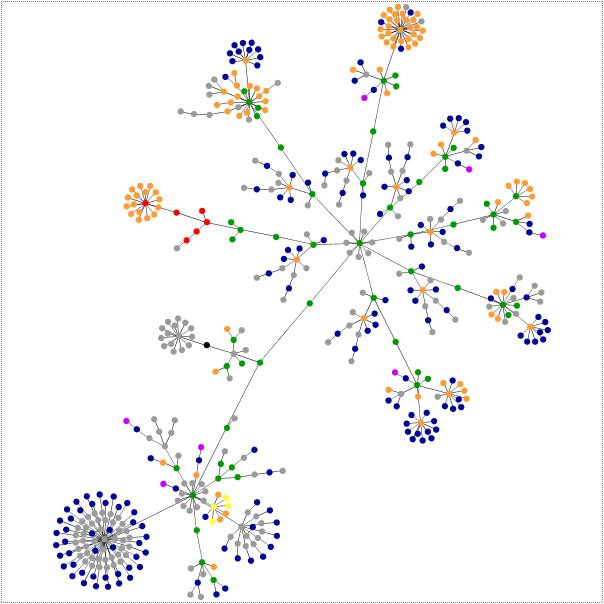Utopian?
I’m just going to throw this up here. It’s mostly me thinking out loud. First I want to say a couple of things about cyborgs as a utopian image. In the science fiction I’ve read and seen, as opposed to what Haraway has read and seen, cyborgs are figured as frightening and horrible. Often they are figured as female (I’m thinking here of the cyborg “leader” in one of the Star Trek: TNG movies). She says “the cyborg does not expect its father to save it”, nor does it “dream of community”; however, Data, in Star Trek, who is a cyborg, does nothing but long to be human and one of the aspects of humanity he longs for most is a family, both in his search for a father (in the form of his creator/inventor) and in terms of having a wife and family. So I both have trouble with Haraway’s figuring of cyborgs as somehow outside of or without these human needs and by her continual anthropomorphizing of them. If they are indeed part human, then they may indeed have human longings that may indeed be part of a traditional sex-gender system.
I do think that the Internet has come close to creating Haraway’s world with “partial identities and contradictory stanpoints.” In chat rooms and on blogs, gender identity often disappears, cropping up only if someone mentions it. In virtual worlds, although one can construct a typically female or male character, the person behind the character may or may not be that gender. Additionally, some worlds allow you to create animals and other very gender-neutral forms. None of this existed when Haraway was writing so it’s amazing that she could come close to describing something like this.
One of the things that both Haraway and Halberstam come back to is the association of technology with the military and that this is one possible reason that women reject technology. I think this is less true now than it was 20 years ago. Or even in 1991 when Halberstam was writing. 1991 was the year of the first Gulf War and it was the first time in my memory that we saw images of missle strikes that looked an awful lot like a video game. While it’s certainly true that the military still uses a lot of technology, it’s also true that technology has infiltrated so much of our lives that the narrative of technology as a militaristic tool is no longer the dominant one. But it strikes me as a narrative that likely affected my mother and perhaps even some people in my generation.
Although Halberstam’s vision that word processing will no longer be a secretarial task (it is, unless you’re in a field that requires a lot of writing), her idea about “a posthierarchial labor structure” that “stresses interaction” is currently the trend and is related to my utopian image of gender and technology. My image involves a network graph. These are graphs that represent connections between things–could be web sites, people, etc. The dots are nodes and the lines are the connections between the nodes. Most graphs show the effect of the power law, whereby some nodes are more popular than others. In the blogosphere, it’s been shown that these graphs have a power law in effect and the nodes with the most connections reprented blogs written by men. So, I’ve gone back and forth between thinking that my utopian vision is for these nodes to have an equal number of links, which I’m told is boring, or for there to be an equal number of “popular” nodes that represent women as men, but that doesn’t seem right either. So perhaps, it’s just that gender disappears within the network and we no longer care what those nodes represent. We become a kind of collective intelligence (borg-like even) while still maintaining our individuality.
These are graphs that represent connections between things–could be web sites, people, etc. The dots are nodes and the lines are the connections between the nodes. Most graphs show the effect of the power law, whereby some nodes are more popular than others. In the blogosphere, it’s been shown that these graphs have a power law in effect and the nodes with the most connections reprented blogs written by men. So, I’ve gone back and forth between thinking that my utopian vision is for these nodes to have an equal number of links, which I’m told is boring, or for there to be an equal number of “popular” nodes that represent women as men, but that doesn’t seem right either. So perhaps, it’s just that gender disappears within the network and we no longer care what those nodes represent. We become a kind of collective intelligence (borg-like even) while still maintaining our individuality.

Comments are closed.